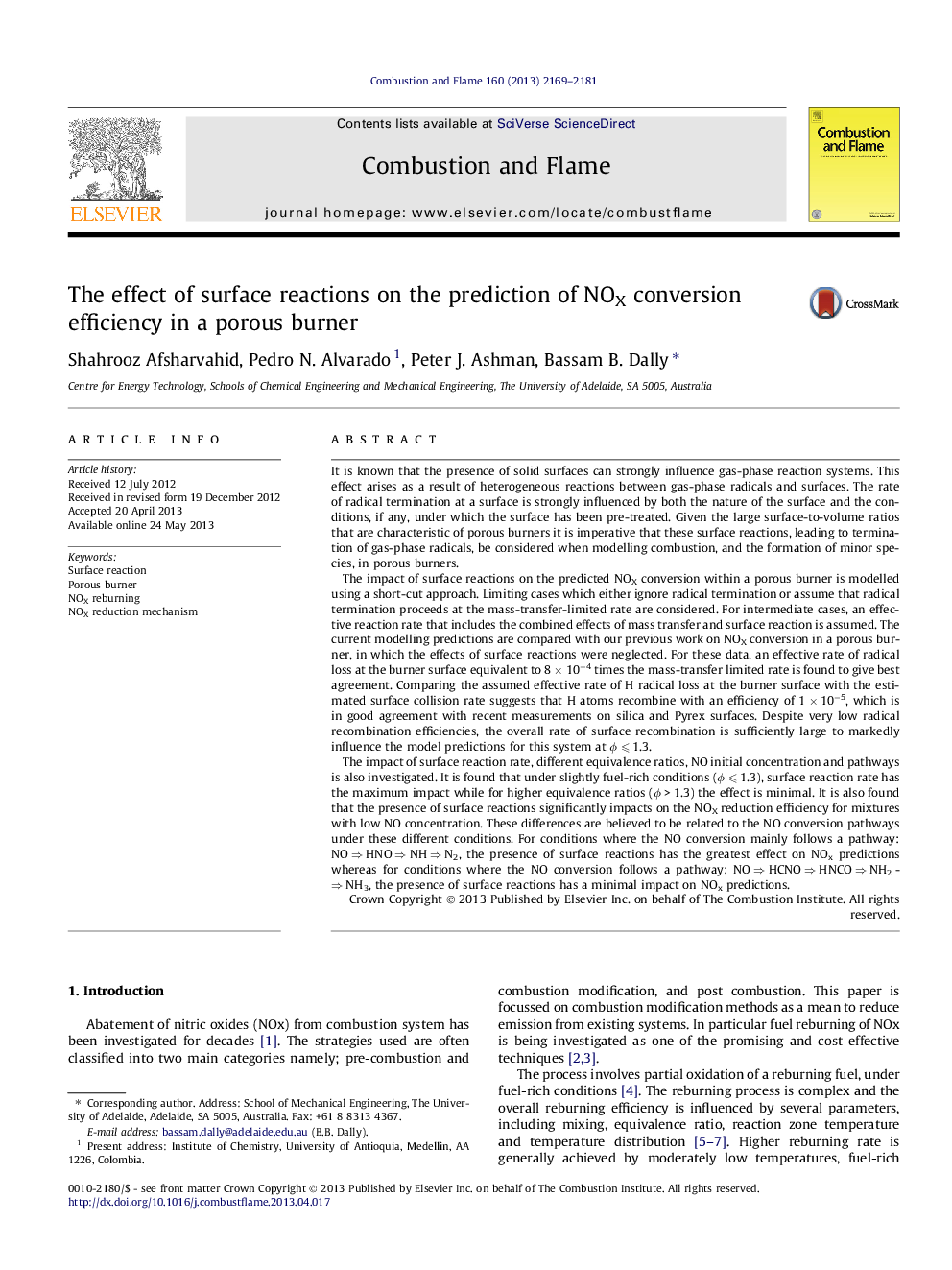| Article ID | Journal | Published Year | Pages | File Type |
|---|---|---|---|---|
| 10264817 | Combustion and Flame | 2013 | 13 Pages |
Abstract
The impact of surface reaction rate, different equivalence ratios, NO initial concentration and pathways is also investigated. It is found that under slightly fuel-rich conditions (Ï ⩽ 1.3), surface reaction rate has the maximum impact while for higher equivalence ratios (Ï > 1.3) the effect is minimal. It is also found that the presence of surface reactions significantly impacts on the NOX reduction efficiency for mixtures with low NO concentration. These differences are believed to be related to the NO conversion pathways under these different conditions. For conditions where the NO conversion mainly follows a pathway: NO â HNO â NH â N2, the presence of surface reactions has the greatest effect on NOx predictions whereas for conditions where the NO conversion follows a pathway: NO â HCNO â HNCO â NH2 â NH3, the presence of surface reactions has a minimal impact on NOx predictions.
Related Topics
Physical Sciences and Engineering
Chemical Engineering
Chemical Engineering (General)
Authors
Shahrooz Afsharvahid, Pedro N. Alvarado, Peter J. Ashman, Bassam B. Dally,
